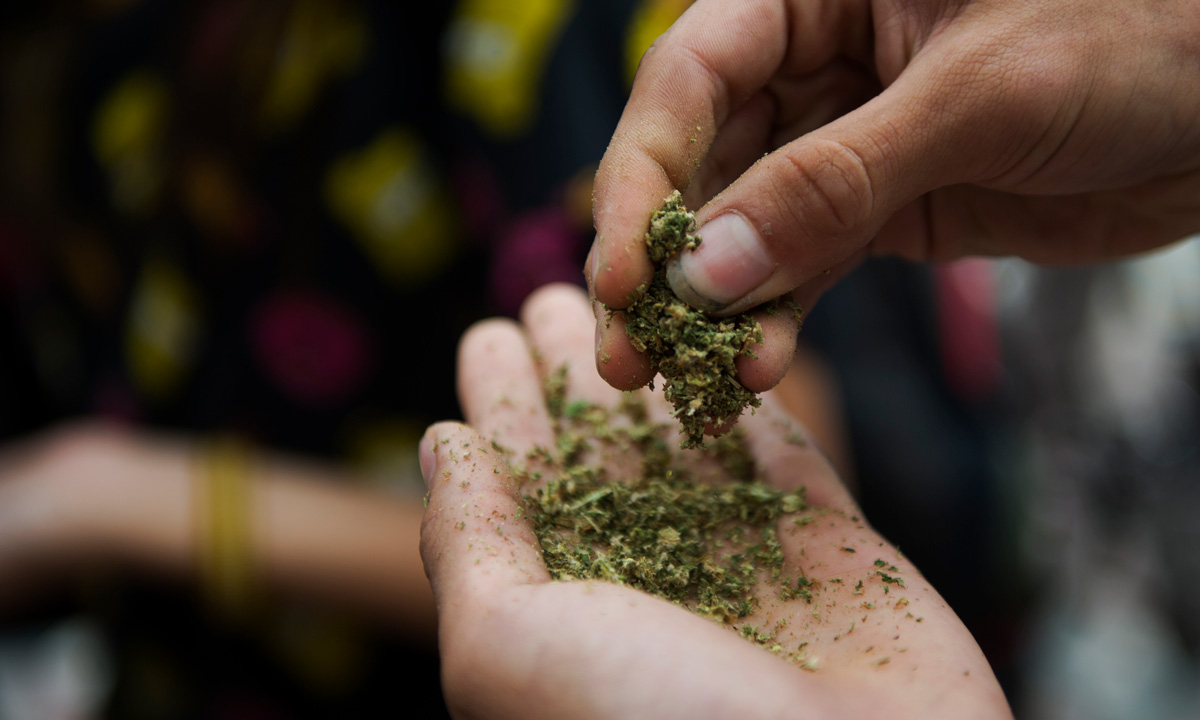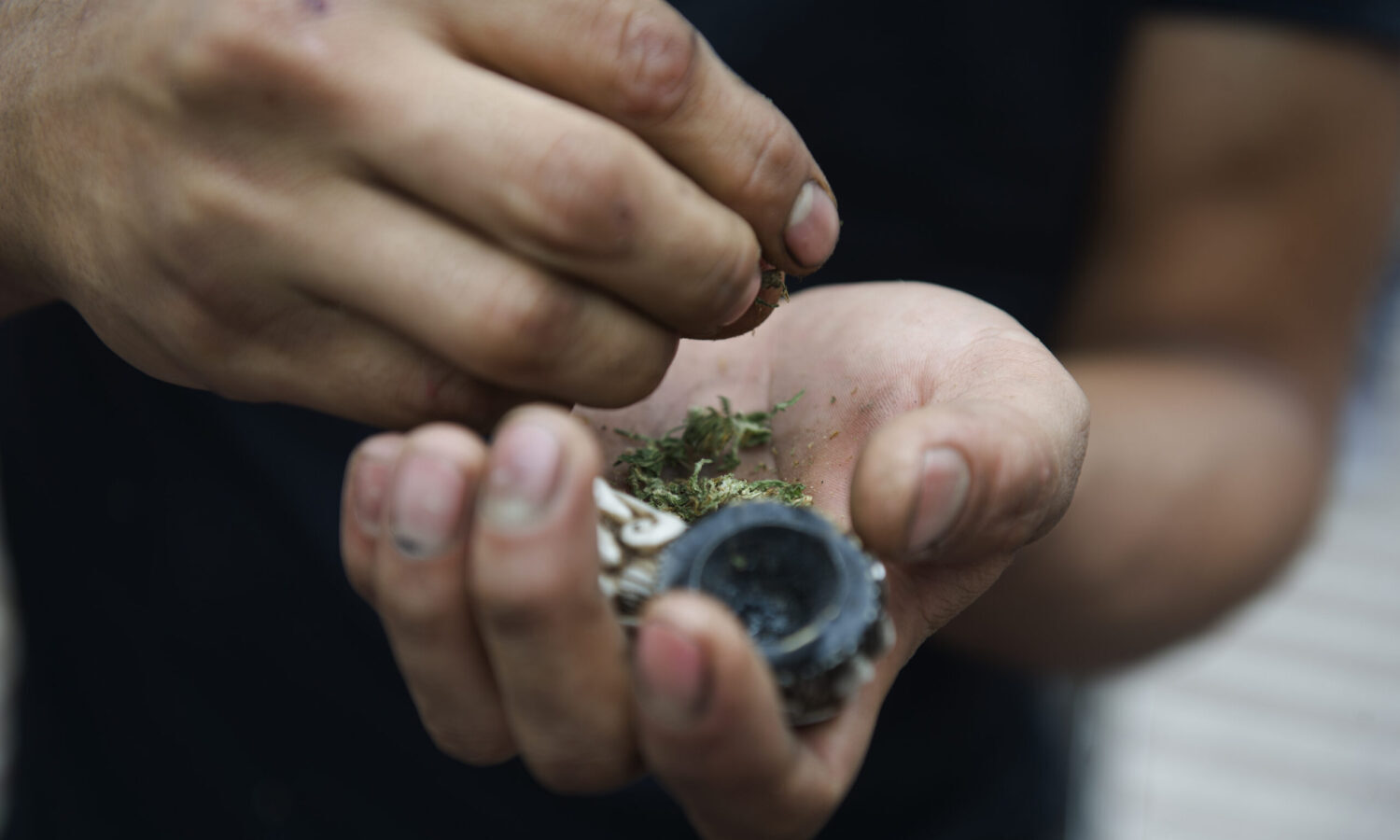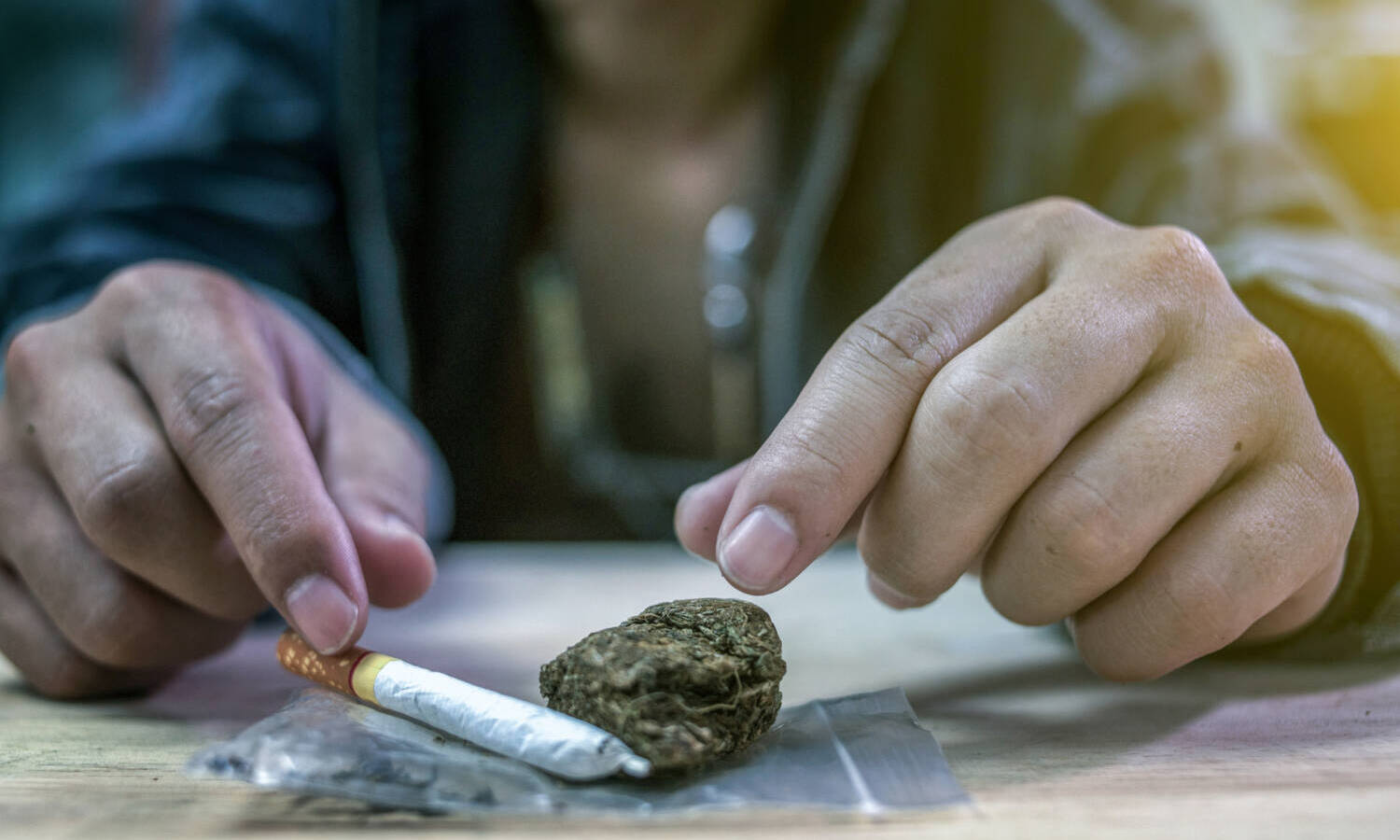By
Illegal synthetic cannabis known under many street names such as Ak-47, K2, Spice, Scoobie Snacks, Mr. Nice Guy and 24-Karat Dream is less commonly used in states that have legal marijuana programs, a Washington State University-led study recently confirmed.
The research published in the Journal of Clinical Toxicology revealed a 37% drop in poisoning reports from illicit synthetic cannabinoids in these states with legal recreational cannabis use, writes Medical Express.
“This study shows some potential public health benefits to the legalization and regulation of adult use of cannabis,” said study lead author Tracy Klein, a WSU associate professor of nursing. “Based on both past research and this current study, it’s evident that users who have a choice to use a less toxic product would potentially do so.”

What Are Synthetic Cannabinoids?
It is important to distinguish between synthetic cannabinoids and the actual marijuana plant, as they are far from the same thing. The name is crafted based on the fact that these synthetic drugs are made of molecules that bind to the same receptors to which cannabinoids such as THC, CBD, and others, actually found in the cannabis plant also attach.
Basically, they are designed to be similar to THC, but often these synthetic analogs have stronger binding affinity and greater potency to the CB1 receptors, which makes them toxic. They are known to cause severe impairment and even death.
According to data from the Centers for Disease Control and Prevention, a 17-year-old boy “suffered a cardiac arrest after reportedly taking a single “hit” of K2/Spice.”
Study Highlights
The researchers analyzed data from the National Poison Data Data System from 2016 to 2019, before the COVID outbreak. They categorized the states into three categories: 1) permissive — allowing both medical and adult use 2) medical — allowing only medical use and 3) restrictive — banning almost all marijuana use.
In the sample that was assessed, there were 7,600 poisoning reports associated with synthetic cannabinoid use, out of which, as much as 65% required medical assistance. There were also 61 deaths.
RELATED: This State Is First In Nation To Ban Synthetic Weed Products: Delta-8 Is Out Starting In July
More than half of these positioning report calls (56) happened in a state with restrictive marijuana policies, the study revealed. Some 38.6% happened in states with medical cannabis programs, and just 5.5% happened in states with legal recreational cannabis use.
Klein further highlighted that future research is needed to identify the use of these drugs and the differences between them. The study doesn’t focus on synthetically derived delta-8, for example.
“We know that there are many cannabinoids being developed and on the market—and the regulators are struggling to catch up,” said Klein.
Co-authors of the study count Janessa Graves from WSU College of Nursing, Julie Dilley of the Multnomah County Health Department and Oregon Healthy Authority, and Dr. Erica Liebelt of the University of Arkansas College of Medicine.

Why Would Anyone Take Synthetic Marijuana?
There are in fact a few synthetic cannabinoids made solely for medical use, such as dronabinol and nabilone. Dronabinol was approved in 1985 by the FDA as Marinol for the treatment of AIDS-related anorexia and later for the treatment of chemotherapy-induced nausea and vomiting. Nabilone is also created and used to treat severe nausea and vomiting caused by cancer drug treatment.
Other illegal synthetic cannabinoids, like K2 or Ak-47, have no medical purposes. So, why would anyone use them?
RELATED: The Danger Of Synthetic Cannabinoids
“These products are made in a powdered format and could be sprayed on or added to something that looks exactly like natural cannabis. So, in a party situation, I could see that someone could use this unintentionally,” said Klein, as reported by CNN Health.
Another problem is testing for these drugs.
“You can’t easily test for illicit cannabinoids. A lot of times, we only find out if a patient has been using them because they’re hospitalized or because they’re dead,” Klein said.
According to CDC, another reason some people turn to synthetic cannabinoids is to avoid a positive result on drug screening conducted as “a condition of employment, in substance abuse treatment programs, or in the criminal justice system.”
This article originally appeared on Benzinga and has been reposted with permission.


